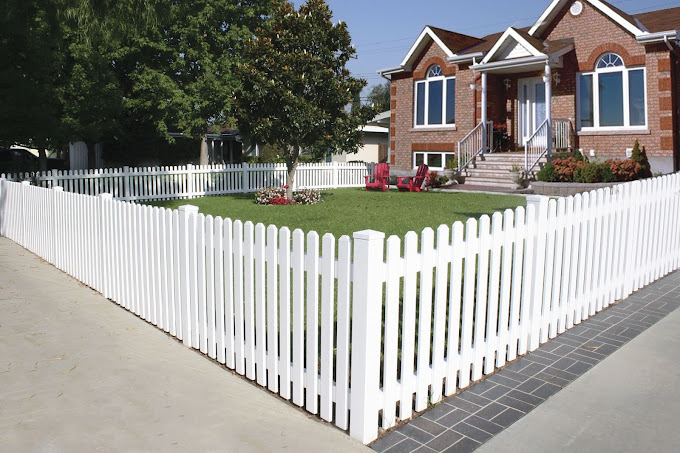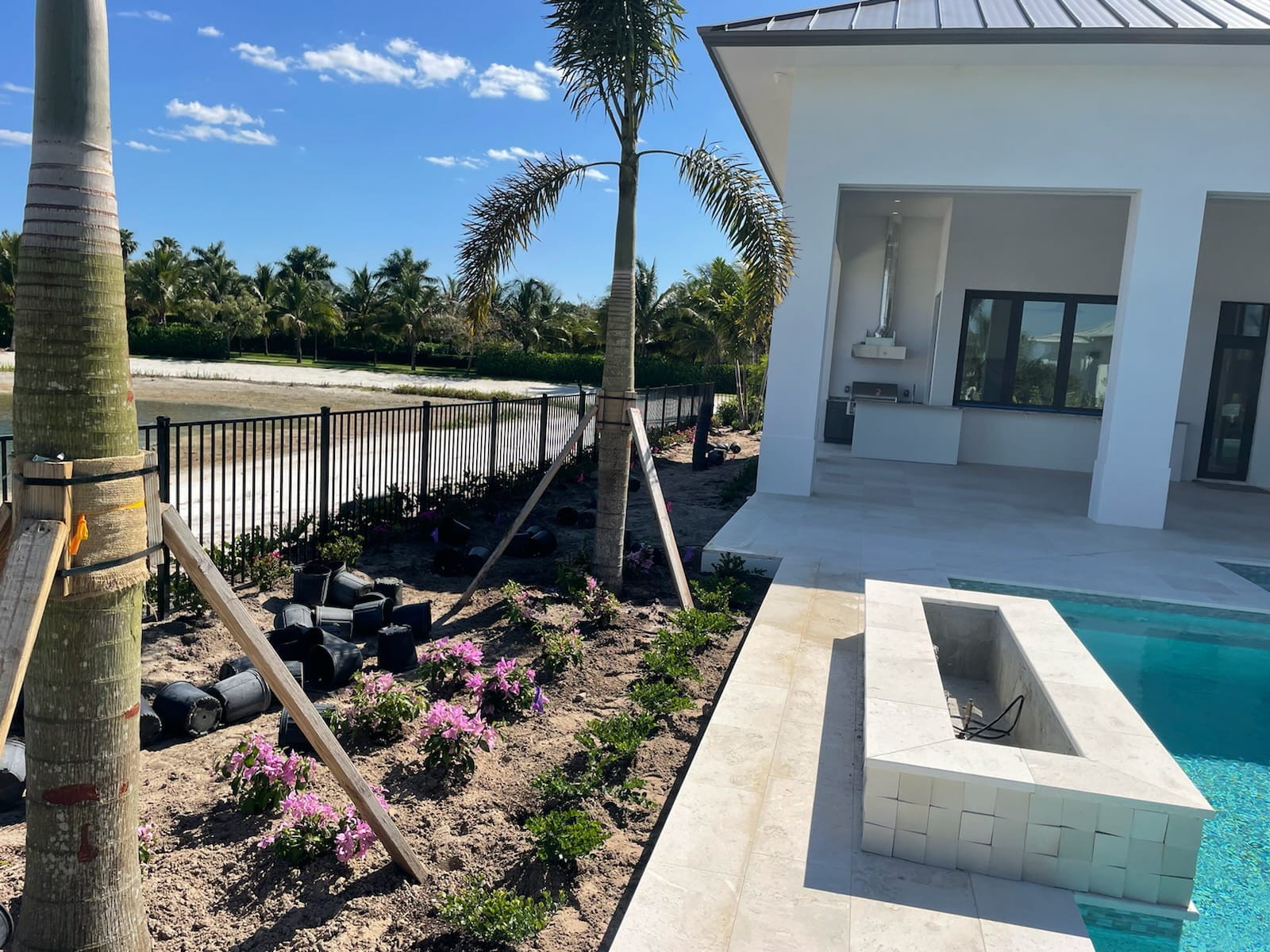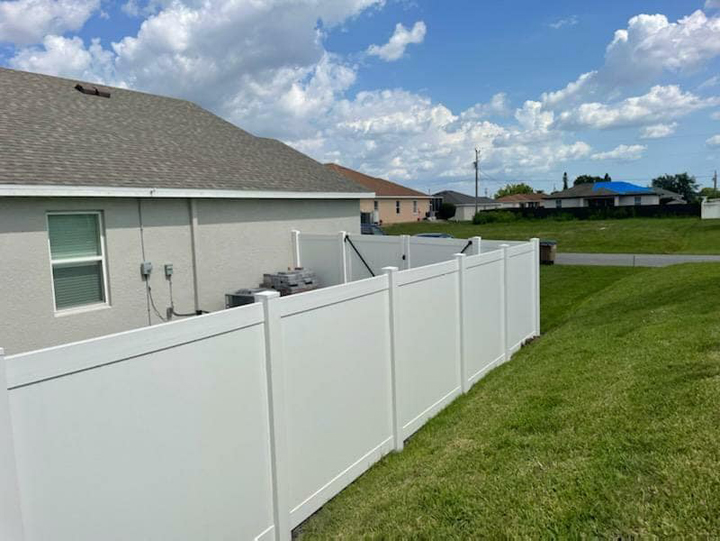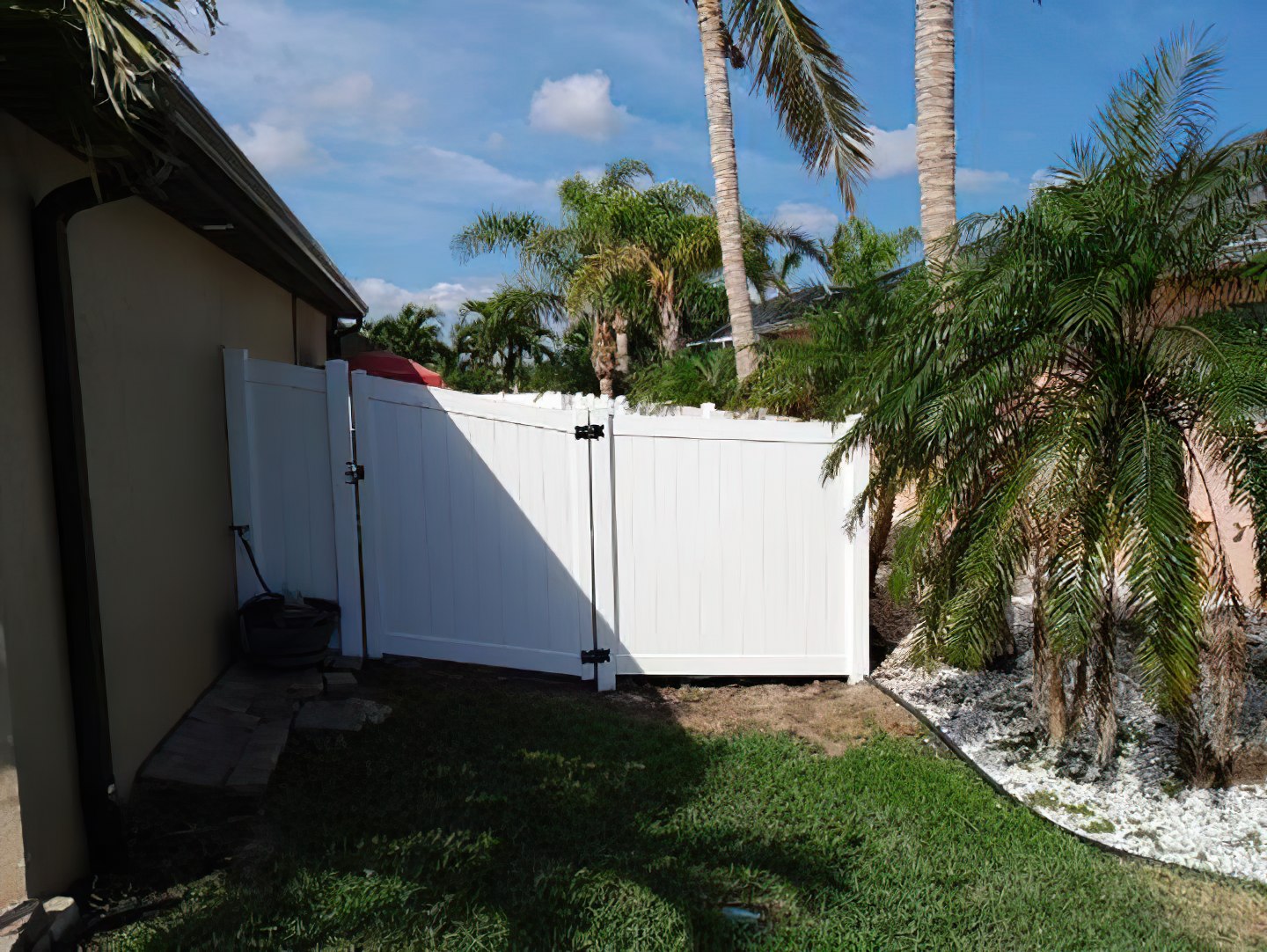Garden fencing is pivotal in yard design, serving practical and aesthetic purposes. It defines property…

What type of fence has the least maintenance?
Stressed ’bout fencing choices? It’s tricky deciding what suits you best with all the maintenance options. Let’s help you on this journey!
Find a fence that looks amazing and needs minimal upkeep. You won’t believe all the possibilities!
What kind of fence is best for property value?
When it comes to increasing property value, picking the right kind of fence is key. Not all fences add the same amount of value. Therefore, you should select a fence that looks nice and requires little maintenance.
The table below compares different types of fences based on their attractiveness, sturdiness, and upkeep needs. You can use this data to figure out which fence is best for you.
| Type of Fence | Appeal | Durability | Maintenance |
|---|---|---|---|
| Vinyl | High | High | Low |
| Wood | Medium | Medium | High |
| Aluminum | High | High | Low/Medium |
| Chain-link | Low | Low/Medium | Very Low |
Vinyl and aluminum fences provide beauty while being low-maintenance and increase your property’s value. Wood fences have moderate appeal, but require a lot of care to maintain their looks. Chain-link fences are durable but not very attractive and don’t offer privacy.
When selecting a fence, take environmental factors like the weather in your area into account. This affects the fence’s longevity.
Pro Tip: Choose eco-friendly fencing options. Adding solar-powered lights to the top of these fences will make your property more attractive at night, while being friendly to the environment. Or why not just build a wall and make your neighbors foot the bill?
What type of fence holds up the best?
Durability is a must when it comes to fences. Many factors come into play when selecting the most durable type. Material, budget, climate and installation process are just some of them. Here’s a table that gives you an idea of the sturdiness of different fences:
| Fence Type | Material | Durability | Cost |
|---|---|---|---|
| Wooden Fence | Wood panels with pressure-treated posts and frames | 5-10 yrs with proper maintenance, 20+ if well-maintained | $8 – $16 per linear foot |
| Vinyl Fence | PVC (Polyvinyl Chloride) | Just under its lifetime warranty which usually ranges from 20-30 yrs | Starts at about $40 per linear foot |
| Aluminum Fence | Aluminum or steel | Can last over 50 yrs without rusting or deteriorating | Starts at around $40 per linear foot |
| Chain-Link Fence | Galvanized steel wire coated in vinyl | Corrosion-resistant coating typically lasts up to 15 yrs in normal climates | Costs approx. $7 – $12 per linear foot |
It’s important to note that durability is subjective and depends on how well it is maintained. However, aluminum fences offer longevity and low maintenance requirements. They resist rust and harsh weather. Fiberglass is another option. However, details on its lifespan are still scarce.
A friend of mine had a wooden fence that rotted after 5 yrs. When he asked the company for an estimate to replace it, they almost doubled their initial charges and blamed it on his lack of maintenance.
Aluminum is another type of fence material that requires minimal maintenance. It is lightweight, strong, and non-corrosive, making it a great choice for areas that receive a lot of rain or snow. Aluminum fencing is also resistant to rust, which is a common problem with other types of fencing materials. The only downside to aluminum fencing is that it is not as aesthetically pleasing as some other fencing materials.
Vinyl fencing is quickly becoming the most popular choice for low-maintenance fencing. It is durable, easy to install, and relatively inexpensive compared to other materials. The material is also resistant to rotting, cracking, and warping, and it can be cleaned with a simple soap and water solution. Vinyl fencing can usually be painted or stained to match any outdoor decor.
Chain link fencing is also a popular choice for low-maintenance fencing. It is relatively inexpensive, easy to install, and durable. Chain link is also resistant to corrosion and will not rot or wear down over time. The only downside to chain link fencing is that it is not as aesthetically pleasing as other materials. If you are looking for a fence that requires minimal maintenance, but still looks great, chain link may be the best choice.
Fence Maintenance Frequently Asked Questions
1. What type of fence requires the least maintenance?
There are several types of fences that require minimal maintenance, including vinyl, aluminum, and composite materials. These materials are resistant to rot, rust, and pests, and can withstand harsh weather conditions.
2. Does a wooden fence require a lot of maintenance?
Yes, wooden fences typically require more maintenance than other materials. Wood is prone to rot, decay, and insect damage, and requires regular staining or painting to maintain its appearance and protect it from the elements.
3. Are vinyl fences expensive?
Vinyl fences can be more expensive upfront than some other materials, such as wood. However, they require very little maintenance over time, which can ultimately save you money in the long run and make them a cost-effective option.
4. How does an aluminum fence compare in terms of maintenance?
Aluminum fences are similar to vinyl fences in that they require very little maintenance over time. They are resistant to rust, corrosion, and weather damage, and can last for many years without needing repairs or replacement.
5. What is a composite fence, and does it require maintenance?
A composite fence is made from a combination of wood fiber and plastic, and is designed to be durable and low-maintenance. It does not need to be painted or stained, and is resistant to rot, decay, and insect damage.
6. How can I keep my fence looking good with minimal maintenance?
To minimize the amount of maintenance your fence needs, it’s important to choose a durable, weather-resistant material and to keep it clean and free of debris. Regular inspections and fence repairs can also help prevent minor issues from becoming major problems.



